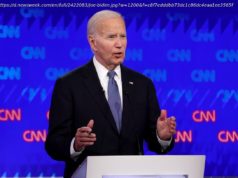In Rochester, N.Y., a maker of furnaces for semiconductor and solar companies is moving its research and development to China to dodge President Donald Trump’s import taxes — a move that threatens a handful of its 26 U. S. jobs. In California’s San Joaquin Valley…
WASHINGTON — In Rochester, N.Y., a maker of furnaces for semiconductor and solar companies is moving its research and development to China to dodge President Donald Trump’s import taxes — a move that threatens a handful of its 26 U. S. jobs.
In California’s San Joaquin Valley, the CEO of a company that makes precision parts for the biomedical and chip making fields jokes bitterly that he’s running «a nonprofit» and might have to cut jobs.
And east of Detroit, a metal stamping company that supplies the auto industry is losing business to foreign rivals because Trump’s steel tariffs have raised metals prices in the United States.
Trump frequently boasts that the taxes he’s imposed on imports — steel and aluminum and nearly half of all goods from China — have showered the U. S. Treasury with newfound revenue. «We are right now taking in $billions in Tariffs,» he tweeted last month. «MAKE AMERICA RICH AGAIN.»
Yet tariffs like Trump’s account for barely 1 percent of federal revenue. It’s actually companies like Linton Crystal Technologies in Rochester, Accu-Swiss Inc. in Oakdale, California, and Clips & Clamps Industries in Plymouth, Michigan, that are paying the price for his trade wars.
Tariffs tend to swell the cost of these companies’ materials and leave them at a competitive disadvantage to foreign rivals unburdened by import taxes. And their exports can be taxed when other countries retaliate with their own tariffs.
«Wars are messy,» said Todd Barnum, chief operating officer at Linton Crystal Technologies. «All the troops get hurt.»
Back in December 2017, Trump gave those companies and others a gift when he signed a measure that slashed the corporate tax rate from 35 percent to 21 percent. The next month, though, he started slapping tariffs on imports — beginning with solar panels and dishwashers, before moving on to steel and aluminum and then hitting $250 billion in Chinese goods.
«Thank you for the tax cut,» said Jeff Aznavorian, president of Clips & Clamps. «However, I’m not going to be benefiting because I’m not going to have any profits to pay tax on.» For his company, «tariffs have completely undermined everything good that those tax cuts brought.»
The higher costs resulting from Trump’s tariffs have yet to inflict much overall damage to a still-robust American economy, which is less reliant on international trade than most other countries are.






